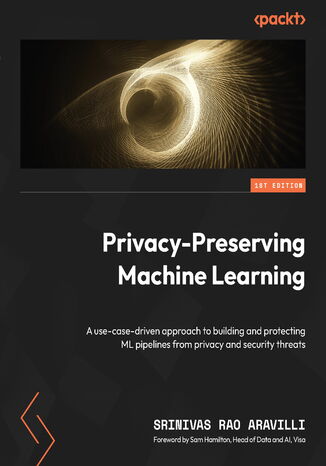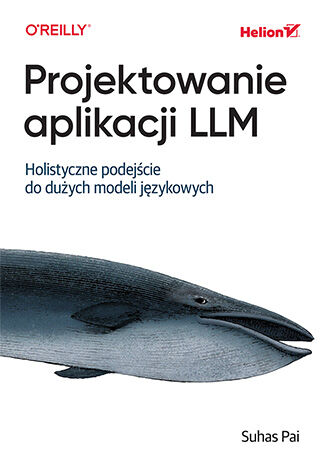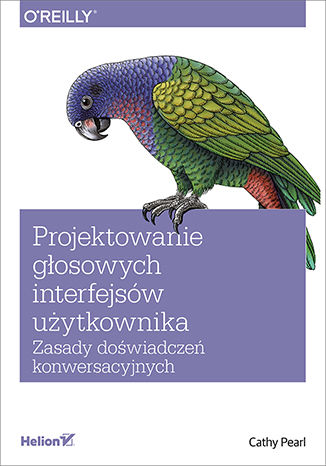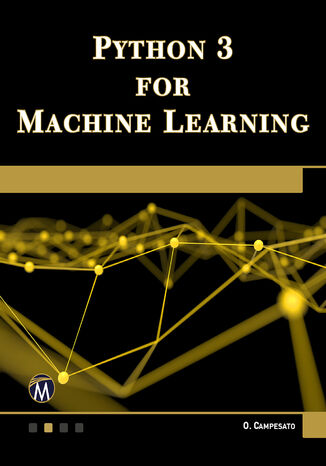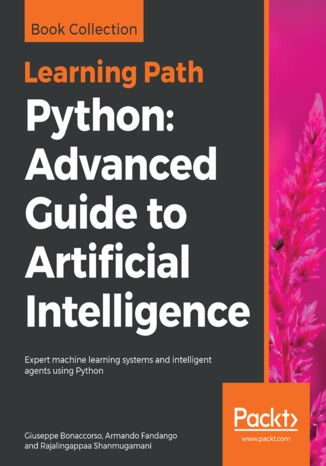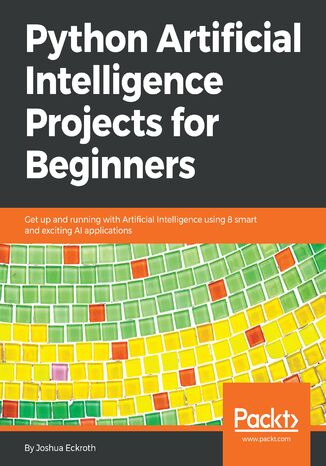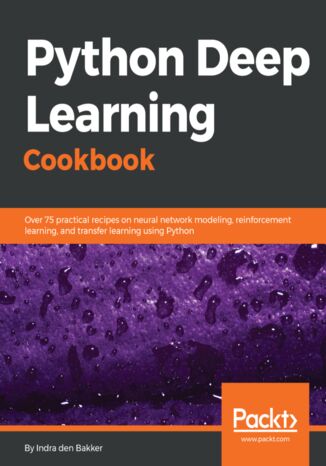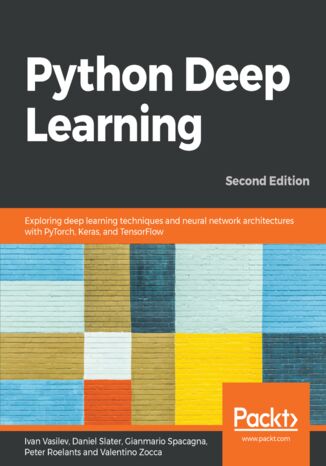Uczenie maszynowe
Srinivasa Rao Aravilli, Sam Hamilton
– In an era of evolving privacy regulations, compliance is mandatory for every enterprise – Machine learning engineers face the dual challenge of analyzing vast amounts of data for insights while protecting sensitive information – This book addresses the complexities arising from large data volumes and the scarcity of in-depth privacy-preserving machine learning expertise, and covers a comprehensive range of topics from data privacy and machine learning privacy threats to real-world privacy-preserving cases – As you progress, you’ll be guided through developing anti-money laundering solutions using federated learning and differential privacy – Dedicated sections will explore data in-memory attacks and strategies for safeguarding data and ML models – You’ll also explore the imperative nature of confidential computation and privacy-preserving machine learning benchmarks, as well as frontier research in the field – Upon completion, you’ll possess a thorough understanding of privacy-preserving machine learning, equipping them to effectively shield data from real-world threats and attacks
Projektowanie aplikacji LLM. Holistyczne podejście do dużych modeli językowych
Suhas Pai
Duże modele językowe przeniknęły do wielu dziedzin techniki uważa się je za skuteczne narzędzia do rozwiązywania szerokiej gamy problemów. Coraz więcej przedsiębiorstw korzysta z ich potencjału w celu własnego rozwoju. Jednak przekształcenie prototypów w funkcjonalne aplikacje bywa złożone i skomplikowane. To wyjątkowe opracowanie zawiera wszystkie ważne koncepcje w dziedzinie LLM! Madhav Singhal, CEO, AutoComputer W tej praktycznej książce opisano wszelkie niezbędne narzędzia, techniki i rozwiązania, których potrzebujesz do tworzenia użytecznych produktów wykorzystujących potęgę modeli językowych. Na początku zdobędziesz wiedzę o budowie modelu językowego. Następnie poznasz różne sposoby zastosowania modeli językowych, czy to poprzez bezpośrednie zapytania do modelu, czy też poprzez jego dostrajanie. Zrozumiesz ograniczenia LLM, takie jak halucynacje i problemy z rozumowaniem, a także dowiesz się, jak sobie z nimi poradzić. Znajdziesz tu również omówienie paradygmatów zastosowań, takich jak generowanie wspomagane wyszukiwaniem (RAG) czy agenty. Z tą książką: przygotujesz zbiory danych do treningu i dostrajania modeli zrozumiesz architekturę transformera zaadaptujesz wstępnie wytrenowane modele do własnych potrzeb poznasz skuteczne techniki optymalizacji i adaptacji dziedzinowej dowiesz się, jak integrować modele językowe z zewnętrznymi środowiskami i źródłami danych Gorąco polecam tę książkę! Megan Risdal, Kaggle (Google) To mistrzowski kurs budowania zaawansowanych systemów AI! Jay Alammar, autor książek
Projektowanie głosowych interfejsów użytkownika. Zasady doświadczeń konwersacyjnych
Cathy Pearl
Możliwość porozmawiania ze swoim komputerem od lat rozpalała wyobraźnię inżynierów, użytkowników i... artystów. Jak się okazało, sprawa nie jest - i nigdy nie była - oczywista: rozumienie naturalnej mowy to skomplikowany proces. Języki, którymi posługują się ludzie, są bowiem przepełnione subtelnościami i niejednoznacznością, a ich zrozumienie wymaga znajomości kontekstu. Intensywny rozwój technologii VUI doprowadził do tego, że komputer wykonujący polecenia głosowe nie jest niczym nadzwyczajnym. Wciąż jednak sporo można w tej dziedzinie poprawić. Szczególnie ważne wydaje się wzięcie pod uwagę wrażeń użytkownika: interfejs VUI, który jest uciążliwy dla odbiorcy, nie podaje potrzebnych informacji lub podaje zupełnie nieprzydatne, będzie użytkowany z niechęcią albo wcale. W tym przewodniku znajdziesz przegląd najważniejszych zasad projektowania interfejsów głosowych, a także opis narzędzi służących do tego celu. Poza najbardziej podstawowymi informacjami o mechanizmach rozpoznawania głosu omówiono złożone strategie rozumienia języka naturalnego, analizę nastroju, zbieranie danych oraz techniki przekształcania tekstu w mowę. W książce wyczerpująco opisano zagadnienia wydajności interfejsu VUI: dowiesz się, co na tę wydajność wpływa i w jaki sposób można ją podnieść. Przedstawiono również problematykę systemów sterowanych głosowo, takich jak asystenty domowe czy interfejsy projektowane dla samochodów. Z przewodnika skorzystają zarówno menedżerowie oraz projektanci biznesowi, jak i projektanci interfejsów VUI, niezależnie od tego, czy samodzielnie piszą swoje VUI, czy korzystają z istniejących platform. W książce: kluczowe koncepcje projektów interfejsów głosowych wizualne reprezentacje interfejsów głosowych technologie rozpoznawania mowy metody testowania aplikacji głosowych poprawa wydajności aplikacji głosowych rzeczywiste przykłady interfejsów głosowych
Python 3 for Machine Learning. Harness the Power of Python for Advanced Machine Learning Projects
Mercury Learning and Information, Oswald Campesato
This book introduces basic Python 3 programming concepts related to machine learning. The first four chapters provide a fast-paced introduction to Python 3, NumPy, and Pandas. The fifth chapter covers fundamental machine learning concepts. The sixth chapter dives into machine learning classifiers, such as logistic regression, k-NN, decision trees, random forests, and SVMs. The final chapter includes material on natural language processing (NLP) and reinforcement learning (RL). Keras-based code samples supplement the theoretical discussion.The course begins with Python basics, including conditional logic, loops, functions, and collections. It then explores data manipulation with NumPy and Pandas. The journey continues with an introduction to machine learning, focusing on essential concepts and classifiers. Advanced topics like NLP and RL are covered, ensuring a comprehensive understanding of machine learning.These concepts are crucial for developing machine learning applications. This book transitions readers from basic Python programming to advanced machine learning techniques, blending theory with practical skills. Appendices for regular expressions, Keras, and TensorFlow 2, along with companion files, enhance learning, making this an essential resource for mastering Python and machine learning.
Giuseppe Bonaccorso, Armando Fandango, Rajalingappaa Shanmugamani
This Learning Path is your complete guide to quickly getting to grips with popular machine learning algorithms. You'll be introduced to the most widely used algorithms in supervised, unsupervised, and semi-supervised machine learning, and learn how to use them in the best possible manner. Ranging from Bayesian models to the MCMC algorithm to Hidden Markov models, this Learning Path will teach you how to extract features from your dataset and perform dimensionality reduction by making use of Python-based libraries. You'll bring the use of TensorFlow and Keras to build deep learning models, using concepts such as transfer learning, generative adversarial networks, and deep reinforcement learning. Next, you'll learn the advanced features of TensorFlow1.x, such as distributed TensorFlow with TF clusters, deploy production models with TensorFlow Serving. You'll implement different techniques related to object classification, object detection, image segmentation, and more. By the end of this Learning Path, you'll have obtained in-depth knowledge of TensorFlow, making you the go-to person for solving artificial intelligence problemsThis Learning Path includes content from the following Packt products:• Mastering Machine Learning Algorithms by Giuseppe Bonaccorso• Mastering TensorFlow 1.x by Armando Fandango• Deep Learning for Computer Vision by Rajalingappaa Shanmugamani
Dr. Joshua Eckroth
Artificial Intelligence (AI) is the newest technology that’s being employed among varied businesses, industries, and sectors. Python Artificial Intelligence Projects for Beginners demonstrates AI projects in Python, covering modern techniques that make up the world of Artificial Intelligence.This book begins with helping you to build your first prediction model using the popular Python library, scikit-learn. You will understand how to build a classifier using an effective machine learning technique, random forest, and decision trees. With exciting projects on predicting bird species, analyzing student performance data, song genre identification, and spam detection, you will learn the fundamentals and various algorithms and techniques that foster the development of these smart applications. In the concluding chapters, you will also understand deep learning and neural network mechanisms through these projects with the help of the Keras library.By the end of this book, you will be confident in building your own AI projects with Python and be ready to take on more advanced projects as you progress
Indra den Bakker
Deep Learning is revolutionizing a wide range of industries. For many applications, deep learning has proven to outperform humans by making faster and more accurate predictions. This book provides a top-down and bottom-up approach to demonstrate deep learning solutions to real-world problems in different areas. These applications include Computer Vision, Natural Language Processing, Time Series, and Robotics. The Python Deep Learning Cookbook presents technical solutions to the issues presented, along with a detailed explanation of the solutions. Furthermore, a discussion on corresponding pros and cons of implementing the proposed solution using one of the popular frameworks like TensorFlow, PyTorch, Keras and CNTK is provided. The book includes recipes that are related to the basic concepts of neural networks. All techniques s, as well as classical networks topologies. The main purpose of this book is to provide Python programmers a detailed list of recipes to apply deep learning to common and not-so-common scenarios.
Ivan Vasilev, Daniel Slater, Gianmario Spacagna, Peter...
With the surge in artificial intelligence in applications catering to both business and consumer needs, deep learning is more important than ever for meeting current and future market demands. With this book, you’ll explore deep learning, and learn how to put machine learning to use in your projects.This second edition of Python Deep Learning will get you up to speed with deep learning, deep neural networks, and how to train them with high-performance algorithms and popular Python frameworks. You’ll uncover different neural network architectures, such as convolutional networks, recurrent neural networks, long short-term memory (LSTM) networks, and capsule networks. You’ll also learn how to solve problems in the fields of computer vision, natural language processing (NLP), and speech recognition. You'll study generative model approaches such as variational autoencoders and Generative Adversarial Networks (GANs) to generate images. As you delve into newly evolved areas of reinforcement learning, you’ll gain an understanding of state-of-the-art algorithms that are the main components behind popular games Go, Atari, and Dota.By the end of the book, you will be well-versed with the theory of deep learning along with its real-world applications.

